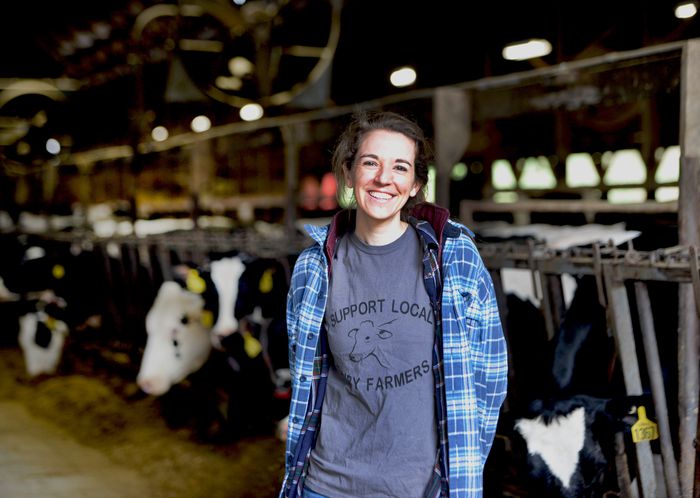By Jim Kinney | April 7, 2020
MassLive
At the 100-acre Calabrese fruit and vegetable farm in Southwick, the sweet corn is planted.
Normally not a remarkable occurrence on a farm in April. But with the coronavirus and efforts to stop its spread disrupting nearly every aspect of every life, it’s remarkable that this one thing is going according to its normal yearly rhythm.
“What we’re doing is we are keeping our planting and growing schedule as though nothing was going on,” said owner Donna Calabrese. “We hope to open up our stands with flowers and vegetable plants in the beginning of May. So everyone can get their garden going.”
But the Calabrese family is doing all the work itself — just five family members and no one else — to keep down the risk of spreading COVID-19. And they are still trying to work out how to get plants and vegetables in the hands of consumers.
Will they have 6-foot marks painted on the floor or just set up tables so people can’t get close? Calabrese said she’ll probably package produce instead of having a big bin of, say, spinach for shoppers.
Maintaining social distancing is just one of the problems area vegetable farmers face, said Claire Morenon, communications manger at CISA, Community Involved in Sustaining Agriculture, in Deerfield.
Others include access to workers, the eventual cost of complying with new rules about food safety and a lack of places to sell.
Winter farmers markets closed due to the pandemic and summer markets are unlikely to open on schedule. Farm-to-table restaurants have either shut down or are selling only to-go meals, so there is less volume. Colleges and cafeterias that buy local food are also closed.
Morenon said there are farmer-led solutions like boxed pickups and even a few home delivery services.
“So people are figuring it out,” Morenon said. “But there is going to be a market loss.”
CISA set up an Emergency Farm Fund to help farms through the COVID-19 emergency.
The state on Monday issued new guidelines for nurseries, greenhouses, garden centers and agricultural supply stores. Ones that sell food or plants that produce food are considered essential businesses and allowed to remain open.
The guidelines include ensuring customers are able to wash their hands or use sanitizer, maintaining six feet between people at all times, disinfecting surfaces and offering remote sales and outside pickup options.
Julia Coffey of Mycoterra Farm, which grows mushrooms in Westhampton, said she helped organize Mass Food Delivery, an online service that has provided more than 1,000 families across most of Massachusetts, including Boston, with delivered local foods from a number of farmers.
 Denise Barstow, a seventh-generation farmer and education and marketing manager at Barstow’s Dairy Store and Bakery and Barstow’s Longview Farm in Hadley, said the family put in a drive-thu window to sell coffee and ice cream.
Denise Barstow, a seventh-generation farmer and education and marketing manager at Barstow’s Dairy Store and Bakery and Barstow’s Longview Farm in Hadley, said the family put in a drive-thu window to sell coffee and ice cream.
Now they are selling groceries out the window to consumers who don’t want to risk a crowded store.
“We’re a Local Hero farm (a program of CISA) so all the grocery items that we sell at Barstow’s are from the Pioneer Valley,” she said. “So it is a great spot for people who don’t want to travel too far and want to avoid the lines and the backups at the box stores.”
It is also a good way to safely keep a few staff people employed.
